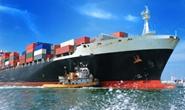Market Data

June 24, 2014
ILWU Contract Negotiations Continue
Written by Sandy Williams
ILWU/PMA contract negotiations are continuing on the West Coast. Armada Corporate Intelligence calls the negotiations “eerily silent” and says whether a strike will occur is unclear. The contract for the ILWU is set to expire June 30.
According to Armada, the Pacific Maritime Association (PMA) is facing increased competition from the Panama Canal expansion. Enlarging the canal will allow mega container and bulk ships to pass through the Panama Canal creating competition for West Coast ports.
The International Longshore and Warehouse Union (ILWU) wants to increase wages for workers but the PMA needs to keep labor and operating costs down in order to stay competitive against Gulf and East Coast ports.
![]() A 2002 ILWU lockout lasted 10 days and caused more than four weeks of backlogs.*
A 2002 ILWU lockout lasted 10 days and caused more than four weeks of backlogs.*
July inventory volumes were moved into the US in June by shippers worried about the potential strike. Armada said inventories are now higher than normal and may cause July economic data to be skewed lower.
Supply chains are shifting to ports in Canada and Mexico, says Armada, which may create short term capacity shortages as well as higher transportation costs.
Armada does not anticipate a long work stoppage—if one occurs at all. A strike would be a blow to the California economy and may have already caused damaged due to the changes in shipping patterns.
The impact of a strike could be significant. “In 2002 dollars, the strike then cost the US economy about $55 billion in productivity losses,” says Armada.
The SMU Steel Summit Conference, Sept 3 & 4, in Atlanta will feature Dr. Chris Kuehl, managing director of Armada Corporate Intelligence and chief editor and a primary writer for Business Intelligence Briefs. Dr. Kuehl will speak on global economics and current and potential risks for companies associated with the steel industry.
(*Note: SMU previously wrote that a “strike” occurred in 2002 but it was actually a lockout–the article has been corrected above.)







